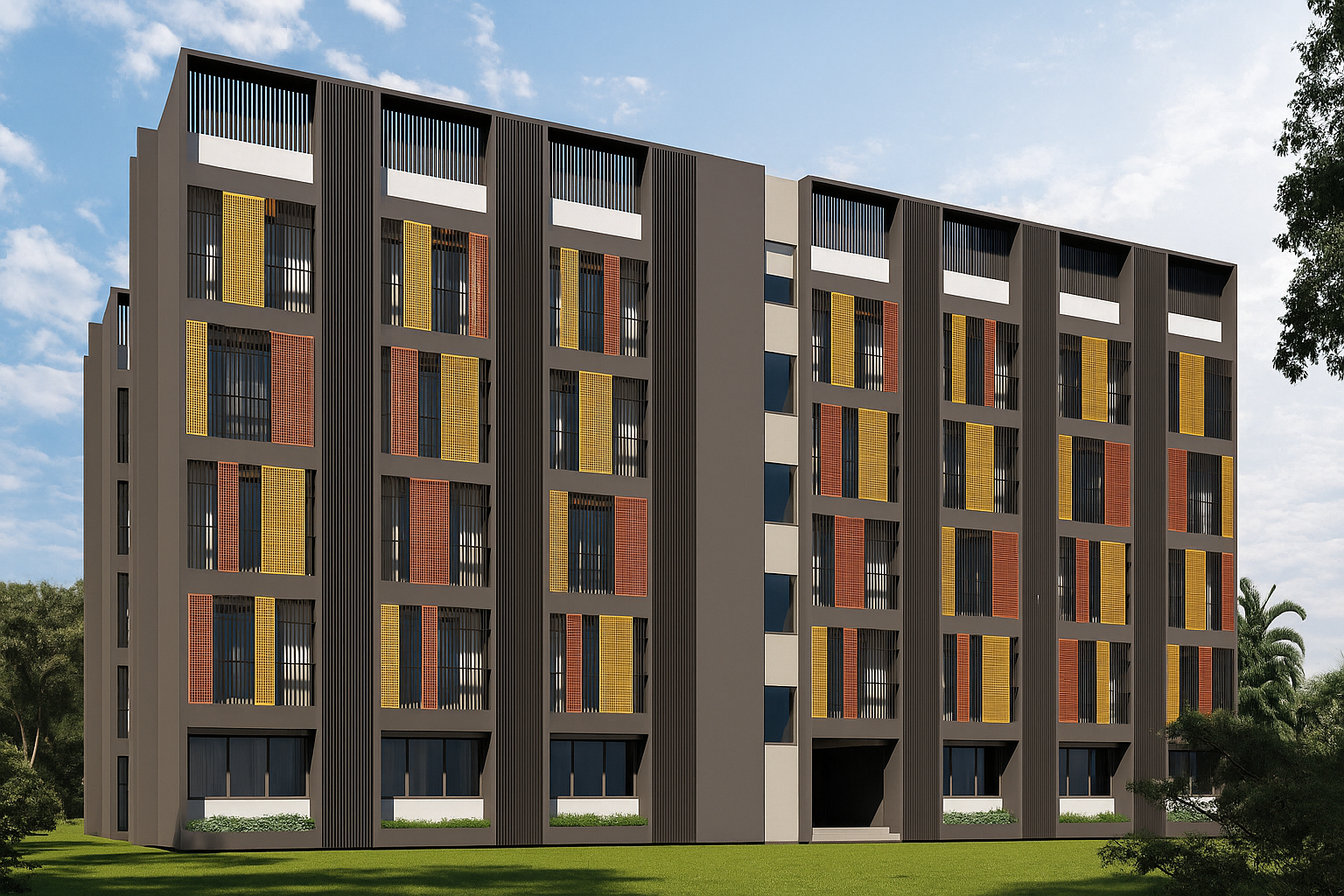Overview
This project (Akhand Jyoti Eye Hospital) involved the construction of the largest eye hospital in eastern India, aiming to contribute to the reduction of preventable blindness in the region. It will be equipped with state-of-the-art technology, modern amenities, and a comprehensive range of eye care services.
Despite facing multiple on-ground challenges, our team ensured on-time and on-budget project delivery—reinforcing BuiltX’s commitment to efficient, sustainable construction for impact-driven organizations.

The Project Owner
This transformative healthcare facility was developed for Akhand Jyoti, a non-profit organization dedicated to eliminating curable blindness in Bihar by 2026. Their mission focuses on providing affordable, accessible, and high-quality eye care, particularly to low-income and underserved communities.
- 80% of surgeries are performed free of cost
- They integrate women empowerment into their mission by training and enabling women to lead eye care initiatives
- The hospital is operated under the Yugrishi Shriram Sharma Acharya Charitable Trust
The Challenges

Constructing one of the most ambitious non-profit healthcare projects in Eastern India came with a unique set of challenges. Here’s what we were up against:
1. Unprecedented scale: Establishing the largest eye hospital in Eastern India was an unprecedented endeavor, and perhaps the most monumental project undertaken by a non-profit in the area.
2. A tight timeline: The entire project needed to be completed in just 13 months, demanding exceptional project planning, coordination, and execution.
3. Limited budget: As with most non-profit construction projects, funding was limited. Managing a project of this scale on a constrained budget required strategic material sourcing and cost-effective engineering solutions.
4. Location: The rural setting of Parsa posed significant logistical and operational hurdles:
- Limited transportation infrastructure
- Inconsistent power supply
- Scarcity of construction materials
- Delays in regulatory approvals and permits
- Shortage of skilled labor in the region
All of this, while global supply chains were still recovering from the COVID-19 pandemic.
In short, the client needed a construction company that could build one of the biggest medical facilities in the region, while faced with limited budgets, a tough deadline, and a challenging location. All while supply chains were still recovering from the pandemic.

How we Approached It
Even though there were challenges, we knew good planning would lead to a positive outcome. Here’s a snapshot of what we did.
- Close collaboration with our client to understand their vision and specific requirements.
- Developing tailored solutions to address infrastructural, budgetary and timeline challenges. For example, we designed specialised concrete, and on-boarded IIT Patna's Civil Engineering Department HOD as an expert.
- Risk considerations that would meet seismic standards and regulations. Earthquake resistance was given special attention - using steel from Tata and F2R cement from ACC.
- Efficient project management that included experienced architects, a site in-charge, and trusted subcontractors. Regular site visits ensured smooth coordination and progress monitoring.

- Open communication with both the client and architect, which allowed us to identify and rectify any design flaws, quickly alter plans, and propose effective solutions. We also organised site visits for donors, personally explaining the project's advancements and addressing any questions or concerns.
- Enhanced security through installation of CCTV cameras ensured security and monitoring.
- Rigorous quality control to deliver a long-lasting, high-quality facility. For example, we sourced tiles from Gujarat and coarse aggregates from Jharkhand.
- Pre-planning to stay within the project budget by carefully selecting suppliers. In fact, negotiating advance deals helped mitigate the risk of price fluctuations.
Our Achievements
This project marked a significant milestone for BuiltX, not just in scale but also in impact. Our achievements can be classified into four key areas:
1. Flexibility and design adaptation:
Midway through the construction process, the project underwent major architectural revisions—ranging from facility layout changes (toilets, waiting rooms) to external design updates and scope expansion.
- We successfully integrated these changes without disrupting timelines
- Maintained structural and functional integrity despite evolving requirements
- Delivered a facility aligned with the client’s revised architectural vision

2. Patient-centric design and user experience:
Understanding that most patients would come from rural areas with limited access to modern healthcare, we prioritized an empathetic and inclusive design approach:
- Use of contrasting colors and clear signage for individuals with visual impairments
- High standards of hygiene, material selection, and accessible layout
- Every detail was tailored to create a welcoming, healing, and supportive environment
3. Client satisfaction and future projects:
Even with significant mid-project design changes and the many challenges mentioned earlier, we:
- Delivered the hospital within the 13-month deadline
- Stayed within budget through cost optimization and careful planning
And of course, on-time, on-budget project completion, We did this despite the mid-way redesign and all the above challenges, demonstrating effective project management and execution, and expense management.
The Final Word
This project acts as a great demonstration of our ability and non-profit focus. This could not have been completed without our mission of having an impact on communities, and our team was energised in some very challenging situations. We are very proud of having played a part in building the largest eye care facility in Eastern India and are sure it will play a part in eradicating blindness in the area, while acting as a model for other regions.

What Our Client Say About us
Project photo Gallery


.avif)





